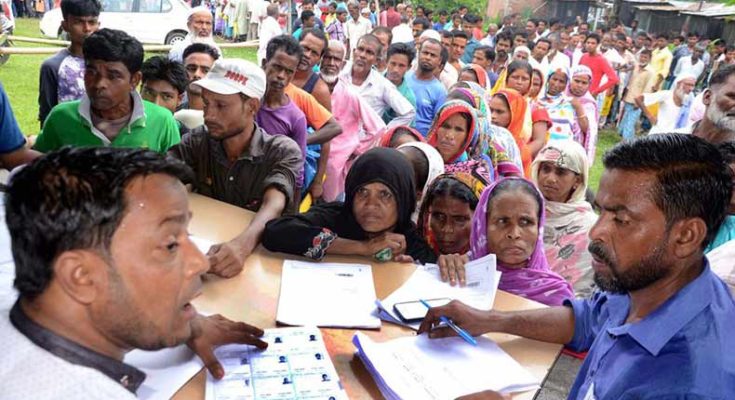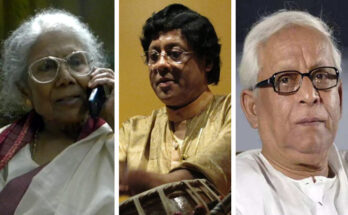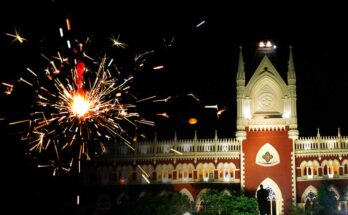NRC – a revolutionary law by Indian government. Image Courtesy – https://www.telegraphindia.com.
The recent political developments in India have created a situation of unrest among the citizens of the country. The present government at the center had promised in its election manifesto that it will solve the citizenship issues prevailing in the country if it voted to power. The government made it back at the center for the second term with a huge mandate under the leadership of Narendra Modi, the present Prime Minister of India.
Fulfilling the promise, the government passed the National Register of Citizens (NRC) in both the houses of the Parliament recently. Due to some of the provisions mentioned in the law have unfavorable guidelines for the people belonging to the Muslim community. Though the experts are of the view that wrong interpretation of the words has caused a misunderstanding among the people. Showing a strong retaliation against the law, massive protests have been launches in multiple states, especially in Assam, Web Bengal and Delhi.
Before moving into the deep, lets us find out what NRC is all about?
National Register of Citizens is a government record of all the valid and legal citizens of the country. Actually, the new law can be regarded as an amendment to the Citizenship Act that was passed by the government in 1955. The new law has not been implemented in the country except for the state of Assam as this border state of India, which is badly affected by the illegal intrusion from neighboring countries like Bangladesh and Bhutan. The number of such infiltrators is massive. Actually, the Border States in the North-east of India are a soft target for the infiltrators. The number of illegal visitors has crossed a large figure and it is still continuing.
The NRC is nothing but a new law that is sure to prevent this illegal infiltration along with sending back the refugees that reached India during the recent years. According to the Minister of Home Affairs, Mr. Amit Shah, the NRC is sure to leave a deep impact on the population reforms. In his speech during the sessions in both the Houses of the Parliament, Amit Shah expressed that the country would overcome the issues due to illegal shelter. He reiterated the firm stands of the Government for implementing the NRC all over the country in due course of time.
Who is the legal citizen of India?
In the view of the Citizenship Act if 1955, every person in India is a citizen of the country who meets the following criteria:
1. Born on or after the January 26, 1950 but before July 01, 1987.
2. Born in India on or after July 01, 1987 but before the commencement of citizenship Amendment Act of 2003 provided their parents had been legal citizens of the country.
3. Born in India on or after the implementation of Citizenship Act of 2003 when both the parents had been the valid citizens of the country.
Provisions In the new NRC Law:
In his speech during the debate in both the houses of Parliament, the Home Minister said that the Government agrees to give citizenship to all the immigrants who reach the country on or before December 31, 2014. Here it is good to mention that this provision should be implemented to all the Hindu, Sikh, Christians, Buddhists, Jains, and Parsis who reached India from Bangladesh, Pakistan, and Afghanistan.
The law clearly says that the Muslims should not get the advantages of NRC law who do not meet the criteria. This part of the NRC law is a clear indication that the Muslim immigrants after December 31, 2914 are sure to face the consequences that may even lead to leaving India and going back to their own country.
To be very precise, the present political unrest is caused by those who are illegal immigrants to this country who are afraid not to produce the documents that can prove them as the bona fide citizens of the country.
What Are The Documents To Submit For Enrolment In NRC?
This is crucial, at least for those who wish to settle down in India by enrolling in the NRC. The government wishes them to show the following documents:
1. Birth Certificate
2. Document related to land purchase in India
3. Board/University certificates that may qualify them as a citizenship.
4. Documents related to bank accounts, LIC papers, and Post Office records
5. Ration card
6. Electoral Card
7. Refugee registration certificate
8. Permanent residential certificate
9. Any other document that proves his or her claim as a citizen of India.
What Does the Exclusion From the NRC Mean?
In the opinion of the Government of India, exclusion from the National Citizenship register does not mean declaration as a foreigner. Such people may apply in the foreigner’s tribunals that are formed to listen to these cases and decide them in the light of the evidences produced by the concerned people. They are supposed to get enough opportunities to prove their citizenship claims. The present political unrest in the country is a result of improper or inadequate knowledge of the legalities of the NRC law. People must gather all the related information about the law, and be patient to handle things as and when the situation demands.





